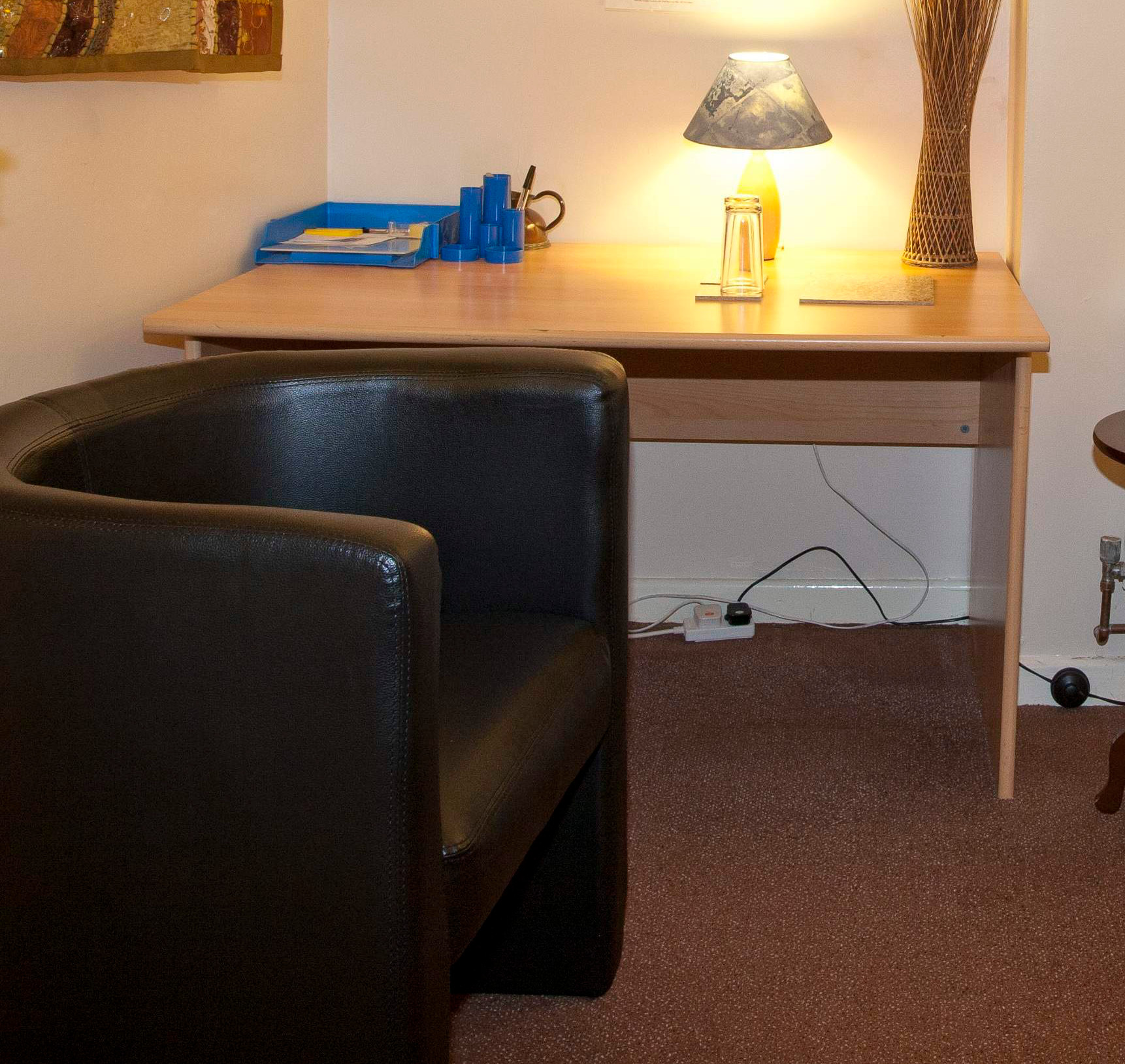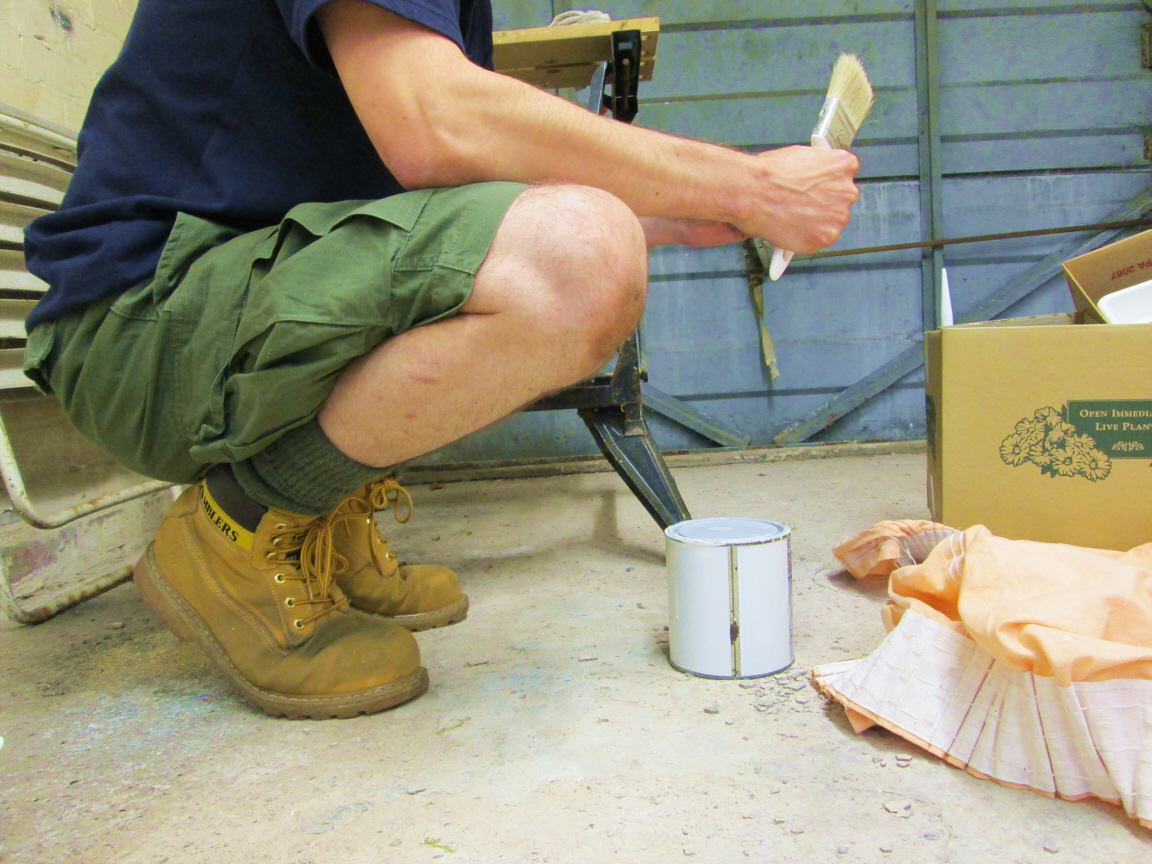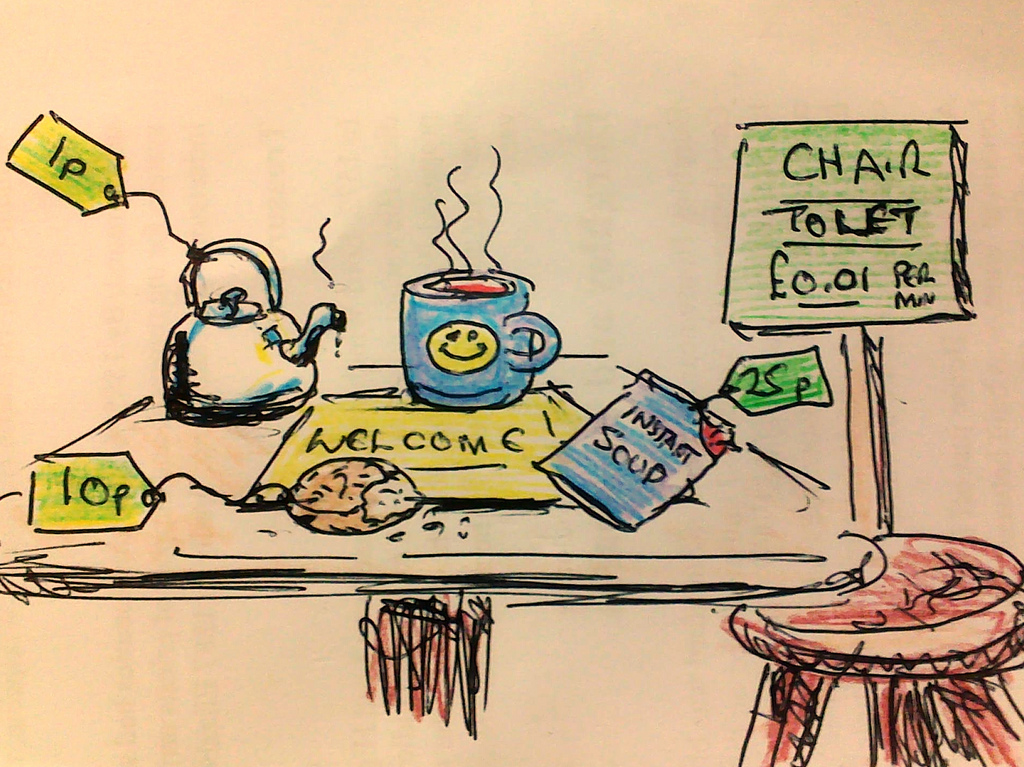Different therapists will each have a different rationale for their counselling session fees, and what they do when a client does not appear for an arranged session,
With respect to a client not appearing for a session with me (giving no warning): I charge the full fee for that session (and charge a half-fee for sessions cancelled with notice). This arrangement is put in writing at the beginning of the clinical work so that the client is informed.
Now, you may think that the absent client aught not to pay for a session that they do not/could not attend. After all, the client was not actually there for that session.
But… I was still there for the session… the whole of it… and I stayed there with the absent client
Read on for a more full rationale that informs my approach for missed/DNA sessions…
Paying the full fee for sessions not attended.
In a client’s absence, I will still be working during the session:-
- I will sit in the room with the client’s empty chair.
Sometimes a cigar is just a cigar.
…apparently Sigmund Freud said this… but other sources say he didn’t 😉
What this phrase means that sometimes therapists who work with the unconscious may interpret evidence… when actually the interpretation is a bit of a miss and a literal understanding may be more appropriate.
Freud’s attributed quotation, above, is referring to how the cigar may be interpreted to represent (say) a penis. Sometimes this interpretation may be accurate (the man who always takes out a very large cigar from the box may be compensating for the small penis… or whatever the “penis” represents for him: lack power, potency, etc.) and sometimes the interpretation may not be accurate (the man simply likes large cigars).
So, baring this in mind…
- I will contemplate my responses to the client’s absence (otherwise called “counter-transference”).
As human beings, we often effect other human beings.
Something we might say something like “he made me so angry” – and what we mean by putting it this way is that one person effected anger in the other.
It works a little bit like a dance (an actual one… two… three… physical dance): if you pull me towards you then I’ll feel that pull; your action resulted in my reaction.
It’s similar with emotions.
If I sit there and contemplate my emotions around the client’s absence (my “reaction”), this might help me understand what might be the client’s part in the dance (the client’s “action”).
Do I feel angry at this absence? Abandoned?
Am I feeling relieved? Was this following a difficult session?
Am I puzzled? Was I expecting this?
This pondering about my emotions can help me begin to appreciate maybe what the client’s “pull” on me may be asking of me… begging me… to understand. Something that, maybe, the client’s conscious mind cannot tell me.
- I will ponder about what the absence might be (called unconscious communication).
Sometimes a DNA (“Did Not Attend”) might be about communicating something that could not be said in words.
Thinking this over can assist me in understanding a little about what might be happening for the client unconsciously (e.g. something that the client cannot put to me verbally, or if the client might be acting something out that wishes to be understood by someone).
Maybe the client became angry with something I said in the last session, but the client can’t tell me.
Maybe the client and I are going at a pace that’s too much for the client, but the client hasn’t been able to say “I want to slow down”.
- I will look over my case notes.
It can be useful to read my notes from the day we started up to today’s session. Maybe there’s something I’ve not seen or have not been looking at since it appeared on the first day.
Perhaps the day of the absence is significant: could be an anniversary that’s important to the client, for example.
Maybe there’s a pattern forming with the client’s absence that the client and I have not paid attention to before.
- From time to time, I’ll check my email & telephone messages…
… to see if the client has left a message for me about their absence or late arrival. Sometimes a cigar…
What I won’t do during a client’s session time…
- I won’t telephone the client / chase them up.
Unlike some other therapists, I won’t telephone the client asking them where they are.
Behind my rationale for this is
(1) It’s likely that both of us already know that they’re not here.
(2) It’s true that the client might have forgotten about the session – but telephoning them during the session time isn’t going to change that.
(3) I believe telephoning during a session time can risk being quite persecutory or shaming. It also breaks a boundary (that during this time we work in the room together). Telephoning goes contrary to my approach to unconscious communication (if a part of the client is needed to tell me something important by an absence, my approach is to understand/respond to the communication, not react to it).
- I won’t email you/write a letter to the client.
… for similar reasons to the item above. I may draft some thoughts for inclusion in an email or a letter as part of trying to understand an absence, but I will leave the writing/sending to after the session.
So, in short, whilst you might not be present for your session, your session is still happening in your absence, and I’m still working for you.
Boundaries help us identify conversations to be had.
Setting boundaries help us – the client and I – to identify when a boundary has been stepped over. Without boundaries being there, we cannot know when a boundary has been transgressed.
Transgressions are an invitation to conversation.
Whilst I may say that “if you miss a session without giving notice, I will charge for that session”, I’m also saying that this is open to a conversation too.
There will be exceptions to boundaries – and we can talk about those as they happen.
Boundaries aren’t meant to punish (although some of our childhood experiences will tell a different story); in counselling they’re there for safety, for containment and to help the counselling work.
Clearly, I may never receive the session fee for a client who has abandoned the work. If the client has left our counselling relationship they will have their own views and perspective about their absence, and we can’t talk about it of course (the client won’t be coming to see me any longer). So even through the client got a full session in their absence, I will be at a financial deficit and may well have to absorb that loss (rather than repeated chase up for it). It’s my position that containing this “loss” is an appropriate approach.
Reading Bion and Winnicott are helpful authors for a more detailed resource for my approach who are interested in learning more.





![Grab a plate and throw it on the ground… 1002196_10151639990871840_1307377321_n[1]](https://icounsellor.co.uk/wp-content/uploads/sites/7/2014/04/1002196_10151639990871840_1307377321_n1-136x300.jpg)

